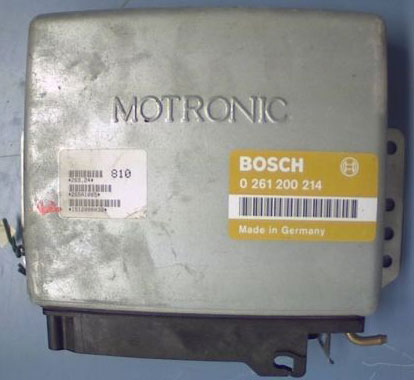In today’s world, environmental concerns are at the forefront of public consciousness. As the automotive industry continues to evolve and innovate, it plays a significant role in addressing these concerns. One critical aspect of vehicle emissions control is the Engine Control Unit (ECU), a vital component that can have a profound impact on a vehicle’s emissions. In this blog, we will delve into the implications of a faulty ECU on emissions and discuss the importance of ensuring environmental compliance in the automotive sector.

Understanding the Engine Control Unit (ECU)
Before we delve into the impact of a faulty ECU on emissions, let’s first understand what an ECU is and its primary functions. The Engine Control Unit is a crucial component in modern vehicles that manages and controls various engine parameters, such as fuel injection, ignition timing, and emission systems. It acts as the vehicle’s brain, ensuring that the engine operates efficiently and meets emission standards.
Impact of a Faulty ECU on Emissions
- Increased Emissions: A malfunctioning ECU can disrupt the precise control of fuel injection and ignition timing, resulting in incomplete combustion. Incomplete combustion leads to increased emissions of harmful pollutants, such as carbon monoxide (CO), nitrogen oxides (NOx), and unburned hydrocarbons (HC). These pollutants contribute to air pollution and have adverse effects on the environment and human health.
- Reduced Fuel Efficiency: A faulty ECU can also lead to inefficient fuel combustion, causing a decrease in fuel efficiency. When the engine burns more fuel than necessary, it not only increases emissions but also leads to higher fuel consumption, which further contributes to greenhouse gas emissions.
- Compliance Issues: Regulatory bodies around the world have established strict emission standards that automobile manufacturers must adhere to. A vehicle with a faulty ECU that fails to meet these standards can result in legal and financial consequences for both manufacturers and vehicle owners. Ensuring that the ECU functions correctly is crucial for compliance with emission regulations.
- Long-term Environmental Impact: The environmental consequences of faulty ECUs extend beyond immediate emissions. Increased pollution levels contribute to global warming, smog formation, and adverse effects on ecosystems. To mitigate these long-term impacts, it is essential to address ECU issues promptly.
Read more: Car Running Rich? What Could Be The Problem?
Importance of Environmental Compliance
- Health and Well-being: High levels of vehicle emissions can lead to respiratory problems, cardiovascular diseases, and other health issues in humans. Ensuring that vehicles comply with emission standards helps protect public health and improve overall well-being.
- Environmental Preservation: Emission control is critical for preserving natural habitats and ecosystems. High levels of pollutants can harm plant and animal life, disrupt ecosystems, and lead to the degradation of air and water quality.
- Climate Change Mitigation: Excessive greenhouse gas emissions, including CO2 from inefficient engines, contribute to climate change. By maintaining properly functioning ECUs, we can reduce our carbon footprint and help combat climate change.
- Legal and Economic Consequences: Non-compliance with emission standards can result in legal penalties, fines, and damage to a manufacturer’s reputation. Ensuring environmental compliance not only avoids these consequences but also fosters trust among consumers.
FAQs
1. What is an ECU, and how does it affect vehicle emissions?
An Engine Control Unit (ECU) is a critical component in vehicles that controls various engine parameters, such as fuel injection and ignition timing. A faulty ECU can disrupt these functions, leading to inefficient combustion and increased emissions of pollutants like carbon monoxide (CO) and nitrogen oxides (NOx).
2. How can I tell if my vehicle’s ECU is faulty?
Common signs of a faulty ECU include poor engine performance, reduced fuel efficiency, illuminated check engine light, and difficulty starting the vehicle. If you experience any of these issues, it’s advisable to have your ECU inspected by a qualified technician.
3. What are the environmental consequences of increased vehicle emissions?
Increased vehicle emissions contribute to air pollution, which can have adverse effects on human health, including respiratory problems and cardiovascular diseases. Additionally, these emissions contribute to climate change, leading to more extreme weather events and rising global temperatures.
4. Are there legal regulations regarding vehicle emissions?
Yes, many countries have established strict emission standards and regulations that vehicle manufacturers must adhere to. Non-compliance with these standards can result in legal penalties and fines for both manufacturers and vehicle owners.
5. How can vehicle owners ensure their vehicles meet emission standards?
Vehicle owners can take several steps to ensure their vehicles comply with emission standards. Regular maintenance, including ECU checks, is essential. Additionally, using quality fuels, proper tire maintenance, and adopting eco-friendly driving habits can all contribute to reduced emissions.
6. Can a faulty ECU be repaired or replaced?
Depending on the extent of the damage, a faulty ECU may be repairable. However, in some cases, replacement might be necessary. It’s essential to consult with a qualified mechanic to determine the best course of action.
7. What role do consumers play in ensuring environmental compliance in the automotive industry?
Consumers can make environmentally conscious choices when purchasing vehicles by considering their emissions and fuel efficiency ratings. Supporting manufacturers that prioritize eco-friendly technologies and maintaining their vehicles properly can also contribute to environmental compliance.
8. How do faulty ECUs impact fuel efficiency?
A faulty ECU can disrupt the precise control of fuel injection and ignition timing, leading to inefficient combustion. This inefficiency causes the engine to burn more fuel than necessary, resulting in reduced fuel efficiency and increased fuel consumption.
9. Are there government incentives for eco-friendly vehicles?
Many governments offer incentives for purchasing eco-friendly vehicles, such as hybrid or electric cars. These incentives may include tax credits, rebates, or access to carpool lanes. It’s a good idea to check with local authorities to see what incentives are available in your area.
10. What can manufacturers do to ensure their vehicles meet emission standards?
Manufacturers must invest in research and development to create vehicles with efficient engines and emission control systems. Regular testing and compliance with regulations are also essential. Additionally, manufacturers can educate consumers about proper vehicle maintenance to reduce emissions.
How can we help?
At ECU Repairs, we not only repair the ECUs but also carry a large number of units in stock ready to swap and are constantly updating our stock lists to hold the more demand ECUs and offer our customers a wider range.
With the latest in technology test rigs set up to extensively test all ECUs as though they were plugged into the vehicle. We test all ECU units for up to 24-48 hours so we’re able to verify every fault found and also catch out the intermittent faults and possibly any the customer was not even aware of.
Read more: ECU Diagnostics: Identifying and Resolving Issues for Optimal Performance
Conclusion
The Engine Control Unit (ECU) plays a pivotal role in managing a vehicle’s emissions. A faulty ECU can have severe consequences, including increased emissions, reduced fuel efficiency, and compliance issues. Ensuring that vehicles meet emission standards is not just a legal requirement but also a moral responsibility in our efforts to protect the environment and public health. By addressing ECU issues promptly and emphasizing environmental compliance, we can reduce emissions, mitigate climate change, and contribute to a healthier and more sustainable future for all.
Remember that addressing ECU issues and ensuring environmental compliance in the automotive industry is a collective effort involving manufacturers, regulators, and vehicle owners. By staying informed and taking responsible actions, we can make significant strides in reducing emissions and protecting our environment



